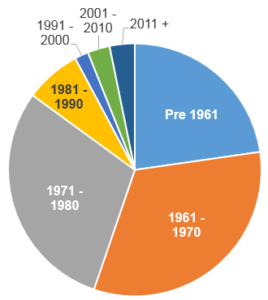 Vote4Housing is a campaign of the Ontario Non-Profit Housing Association and the Co-operative Housing Federation of Canada to focus attention and seek commitments to action on affordable housing during the June 2 provincial election. You can learn more at https://vote4housing.ca/
Vote4Housing is a campaign of the Ontario Non-Profit Housing Association and the Co-operative Housing Federation of Canada to focus attention and seek commitments to action on affordable housing during the June 2 provincial election. You can learn more at https://vote4housing.ca/
The focus of the campaign is a letter-writing campaign. On their Take Action page, there is a blank form where you can say why you care about affordable housing and what you want done. Lots of key facts are provided.
And there is an action plan.
- Build and acquire 99,000 deeply affordable non-profit, co-op and supportive housing units over 10 years. Create an Affordable Housing Trust from Land Transfer Tax Revenue to help.
- Eliminate and prevent homelessness. Oddly, there is no deadline.
- To protect existing affordable private rental housing, the plan calls for creation of a program for non-profits, coops and municipalities to buy affordable units. It also calls for exploring rent measures to protect tenants from evictions and to protect affordable stock.
It’s not a perfect platform. With more than 735,000 Ontario households in core housing need and more than 200,000 households on wait lists for subsidized units, the building target is too low but would be a significant improvement. There should be a deadline for eliminating homelessness. Stronger tenant-protection measures should be implemented, not just explored.
But your letters can express all of that. What’s vital is that you take a few minutes to express your view.
ONPHA Response to Ontario’s Budget
The Ontario Non-Profit Housing Association welcomed some measures in the Ontario budget that came down last week but sought a much more robust commitment to new building, to end homelessness and to sustain the community housing sector. https://qc.onpha.on.ca/2022/04/onphas-rapid-response-2022-ontario-budget/
The budget focused on speeding up approvals for new housing, ending backlogs at the Ontario Land Tribunal, investments to sustain community housing and measures for homeowners. There were no measures specific to rental housing, which provides homes to a third of Ontario residents.
Ontario Housing Information
There is a useful collection of data on housing in Ontario at “Housing Needs in Ontario,” https://www.ontario.ca/document/community-housing-renewal-ontarios-action-plan-under-national-housing-strategy/housing-needs-ontario#:~:text=Core%20housing%20need%20measures%20whether,(housing%20in%20good%20repair)Unfortunately, most of the data is only up to 2018.
But you can see that the annual increase in rents rose steadily from 2014 to 2018.
And that Ontario has had higher levels of core housing need than the rest of Canada since at least 2006. And most of Ontario’s rental housing was built before 1980 (see the pie chart below). Not surprisingly, the average rent in units built since 2001 is much higher than the rents in the older units, by between 50 and 62 per cent.

Also useful are the reports of the Financial Accountability Office of Ontario on housing and homeless programs in Ontario, which predicts that core housing need will continue to grow based on current plans and spending. https://www.fao-on.org/web/default/files/publications/FA1906%20Affordable%20Housing/Housing%20and%20Homelessness%20Programs-EN.pdf
And the report of the Office of the Auditor General of Ontario on its value-for-money audit on homelessness https://www.auditor.on.ca/en/content/annualreports/arreports/en21/AR_Homelessness_en21.pdf